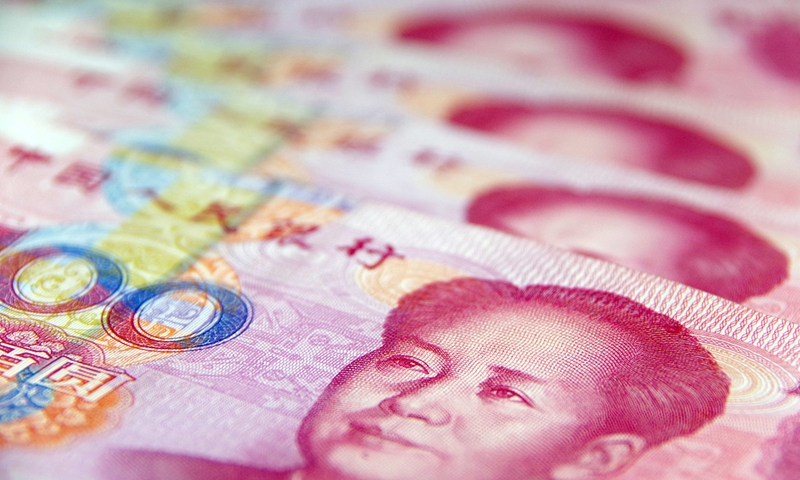
Photo:VCG
A yuan clearing business was officially launched in Argentina on Tuesday, local time, which is expected to inject new momentum into bilateral economic and trade cooperation and facilitate the use of yuan in cross-border transactions, officials said.
With the launch of the yuan clearing service, Chinese and Argentinian enterprises and financial institutions can use yuan for cross-border transactions, a mechanism that is vital for the economic development of Argentina, said Miguel Ángel Pesce, governor of the Central Bank of Argentina, China Media Group reported.
"Cross-border transactions between the two countries will be easier without having to go through a third currency, so we are very happy about that," he said.
He said that the move is very important for Argentina's domestic economy and it will also boost the confidence of Chinese companies who want to invest in Argentina.
China is Argentina's second-biggest trade partner. In 2021, bilateral trade increased by 28.3 percent year-on-year to $17.83 billion, the Ministry of Commerce (MOFCOM) said in a press conference in February.
China is ready to work with Argentina to advance the Belt and Road Initiative (BRI) and further promote practical economic and trade cooperation in various fields, especially investment in emerging areas such as the digital economy and green development, so as to continuously upgrade bilateral economic and trade cooperation and improve the well-being of the two countries, MOFCOM said.
In a separate move, China and Pakistan have recently signed a memorandum on yuan clearing in Pakistan. The arrangement will help enterprises and financial institutions in the two countries conduct cross-border transactions using yuan, according to a statement from the People's Bank of China (PBC).
China has been steadily advancing the yuan's internationalization.
Cross-border yuan receipts and payments in non-banking sectors hit a record high of 36.6 trillion yuan ($5.1 trillion) in 2021, up 29 percent year-on-year, according to the 2022 RMB Internationalization Report released by the PBC in September.
By the end of 2021, the PBC had signed bilateral local currency swap agreements with 22 central banks or monetary authorities along the BRI, and had established yuan clearing arrangements in eight countries along the BRI.
Global Times




